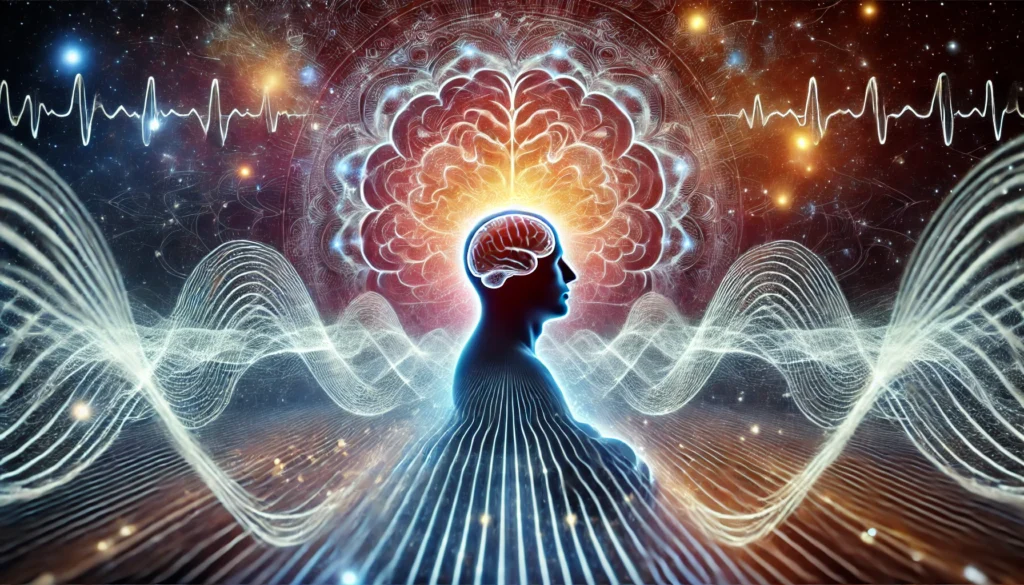Understanding the Foundations of a Healthy Mind
The human brain is one of the most complex and intricate organs in the body, responsible for memory, cognition, emotional regulation, and overall mental well-being. Maintaining a “healthy minded” state is not just about preventing cognitive decline but also about fostering mental clarity, emotional resilience, and lifelong brain vitality. In recent years, neuroscientific research has provided compelling insights into the factors that support brain health and longevity. By understanding how lifestyle choices, diet, physical activity, sleep, and cognitive engagement influence brain function, individuals can take proactive steps to enhance their mental well-being.
You may also like : Best Things for Brain Health: Expert-Backed Strategies to Keep Your Mind Sharp
Longevity is not merely about adding years to life but ensuring those years are filled with vitality, mental acuity, and cognitive function. The goal is to cultivate a “health mind” through evidence-based practices that support neural pathways, neuroplasticity, and overall brain health. This article explores key scientific strategies to optimize brain function and promote long-term mental wellness.
The Role of Nutrition in Brain Health and Longevity
Diet plays a critical role in brain health, influencing cognitive function, mood stability, and neuroprotection. A nutrient-rich diet helps combat oxidative stress, inflammation, and cellular damage, all of which contribute to neurodegenerative diseases. Researchers have identified specific dietary patterns and nutrients that support a “healthy minded” lifestyle, ensuring cognitive resilience and longevity.
One of the most widely studied dietary approaches for brain health is the Mediterranean diet. This eating pattern is rich in antioxidants, healthy fats, and essential vitamins that promote cognitive function. Foods such as fatty fish, olive oil, nuts, leafy greens, and berries contain omega-3 fatty acids, polyphenols, and flavonoids that protect brain cells from damage. Omega-3s, particularly docosahexaenoic acid (DHA), are essential for neuronal integrity and communication, making them a cornerstone of brain health.
Additionally, the role of micronutrients like B vitamins, vitamin D, and magnesium in supporting neurological function cannot be understated. B vitamins, particularly B6, B12, and folate, help regulate homocysteine levels, which, when elevated, increase the risk of cognitive decline. Vitamin D, known as the “sunshine vitamin,” plays a crucial role in neuroprotection and reducing the risk of neurodegenerative conditions. Magnesium supports synaptic plasticity, which is vital for learning and memory.
Intermittent fasting and calorie restriction have also been linked to improved brain function and longevity. These dietary strategies stimulate autophagy, a cellular cleansing process that removes damaged proteins and enhances neural efficiency. By implementing brain-healthy nutrition strategies, individuals can create a foundation for cognitive vitality and long-term brain health.
Physical Activity and Its Impact on Cognitive Function
Regular physical activity is one of the most powerful tools for maintaining a “health mind” and preventing cognitive decline. Exercise promotes neurogenesis, the process by which new neurons are created, particularly in the hippocampus, a brain region associated with memory and learning. Engaging in aerobic exercise, such as walking, running, swimming, or cycling, increases blood flow to the brain, enhances synaptic connectivity, and supports the release of neurotrophic factors like brain-derived neurotrophic factor (BDNF).
Strength training also contributes to brain health by reducing inflammation and oxidative stress while enhancing muscle-brain communication. Studies have shown that individuals who engage in resistance training experience improvements in executive function, working memory, and overall cognitive performance. Movement-based practices such as yoga and tai chi further enhance brain health by reducing stress, improving balance, and fostering mindfulness, all of which contribute to a “healthy minded” approach to life.
The relationship between exercise and neuroprotection is further supported by research on sedentary behavior. Prolonged periods of inactivity have been linked to an increased risk of cognitive decline and neurodegenerative disorders such as Alzheimer’s disease. Incorporating movement into daily routines, whether through structured workouts, active commuting, or recreational activities, helps sustain brain health and promote longevity.

Sleep Quality and Cognitive Longevity
Sleep is a fundamental pillar of brain health, playing a vital role in memory consolidation, cognitive processing, and emotional regulation. Chronic sleep deprivation has been associated with increased levels of beta-amyloid plaques, a hallmark of Alzheimer’s disease. Ensuring quality sleep is essential for maintaining a “health mind” and optimizing cognitive function.
During sleep, the glymphatic system—a waste clearance system in the brain—removes toxins and metabolic waste that accumulate during waking hours. Deep sleep, particularly slow-wave sleep, facilitates neural repair, enhances synaptic pruning, and supports long-term memory formation. To achieve optimal sleep quality, individuals should prioritize a consistent sleep schedule, limit exposure to blue light before bedtime, and create a sleep-conducive environment.
Practices such as mindfulness meditation, relaxation techniques, and cognitive behavioral therapy for insomnia (CBT-I) can improve sleep quality and duration. Additionally, certain nutrients, including magnesium and melatonin, have been shown to support healthy sleep patterns. By prioritizing restorative sleep, individuals can enhance cognitive longevity and maintain mental clarity throughout life.
Cognitive Engagement and Lifelong Learning
Mental stimulation and cognitive engagement play a crucial role in maintaining a “healthy minded” lifestyle. The concept of neuroplasticity—the brain’s ability to reorganize and form new neural connections—highlights the importance of lifelong learning and intellectual engagement. Engaging in activities that challenge the brain, such as reading, puzzles, learning a new language, or playing a musical instrument, strengthens neural networks and enhances cognitive resilience.
Social interaction is another critical component of brain health. Strong social connections have been linked to a lower risk of dementia and cognitive decline. Meaningful conversations, community involvement, and emotional support contribute to mental well-being and longevity. Additionally, practicing mindfulness and stress management techniques, such as meditation and deep breathing, helps regulate the brain’s stress response and enhances emotional resilience.
Incorporating digital detoxes and reducing excessive screen time can further support cognitive health. Over-reliance on digital devices can lead to information overload, reduced attention span, and cognitive fatigue. Balancing technology use with real-world interactions and hands-on learning experiences fosters a “health mind” and enhances overall cognitive function.

Frequently Asked Questions (FAQ) on Brain Health and Longevity
1. How does brain health impact overall longevity?
Brain health plays a crucial role in longevity because cognitive function directly influences lifestyle choices, emotional regulation, and physiological resilience. A “healthy minded” individual is more likely to engage in behaviors that promote physical well-being, such as regular exercise, balanced nutrition, and stress management. Research has shown that individuals with strong cognitive health are better equipped to handle challenges related to aging, reducing the risk of neurodegenerative conditions like Alzheimer’s disease. Additionally, mental well-being is closely tied to cardiovascular health, as poor cognitive function is often linked to increased inflammation and vascular issues. Maintaining a “health mind” not only extends lifespan but also enhances the quality of those years by preserving independence and cognitive sharpness.
2. Can stress reduction techniques really improve brain function?
Yes, stress reduction techniques have been scientifically proven to enhance brain function by lowering cortisol levels and promoting neuroplasticity. Chronic stress negatively affects memory, focus, and emotional regulation by impairing the hippocampus, a region essential for learning. Practices like mindfulness meditation, deep breathing exercises, and progressive muscle relaxation help regulate the nervous system and enhance mental clarity. Engaging in creative activities such as journaling, painting, or playing an instrument also fosters a “healthy minded” state by reducing psychological tension. A consistently “health mind” is one that manages stress effectively, ensuring long-term cognitive resilience.
3. What role does hydration play in cognitive health?
Hydration is vital for maintaining optimal brain function, as even mild dehydration can impair concentration, mood, and memory. The brain is composed of approximately 75% water, and fluid balance is essential for neurotransmitter production and cellular energy. Studies indicate that individuals who maintain proper hydration levels exhibit better problem-solving abilities and sustained attention. A “healthy minded” approach includes drinking sufficient water throughout the day, particularly for those engaging in mental or physical activities. By prioritizing hydration, individuals can support their “health mind,” preventing cognitive fatigue and enhancing neural efficiency.
4. How does social engagement contribute to brain longevity?
Social engagement has been linked to lower risks of cognitive decline and improved emotional well-being. Engaging in meaningful conversations, participating in community activities, and maintaining strong personal relationships stimulate the brain and prevent isolation-related stress. Studies show that individuals who sustain regular social interactions tend to have sharper memory and a reduced risk of dementia. A “healthy minded” lifestyle incorporates socialization as a key factor in maintaining brain resilience. Strengthening one’s social network fosters a “health mind” by promoting emotional support and cognitive stimulation.
5. Can certain hobbies enhance cognitive function?
Yes, engaging in intellectually stimulating hobbies helps preserve and even improve cognitive function over time. Activities such as playing chess, solving puzzles, learning a new language, or practicing a musical instrument enhance neuroplasticity and strengthen brain pathways. Regularly challenging the mind with new skills prevents cognitive stagnation and delays the onset of age-related mental decline. A “healthy minded” individual seeks out creative and problem-solving pursuits that require mental agility. Keeping the brain engaged ensures a “health mind” that remains adaptable and capable of lifelong learning.
6. How does gut health influence brain function?
The gut-brain connection plays a pivotal role in mental health and cognitive performance. The gut microbiome produces neurotransmitters like serotonin and dopamine, which regulate mood and cognitive function. Poor gut health has been associated with increased inflammation, which can negatively impact brain performance and elevate the risk of neurodegenerative diseases. A “healthy minded” diet includes probiotic-rich foods such as yogurt, kefir, and fermented vegetables to support gut-brain communication. Maintaining a balanced gut ecosystem is essential for achieving a “health mind” that operates with clarity and emotional stability.
7. What are some advanced brain-training techniques?
Beyond traditional puzzles and memory games, advanced brain-training techniques involve immersive learning experiences, biofeedback, and neurofeedback therapy. Virtual reality cognitive training, for example, engages multiple senses to enhance spatial awareness and problem-solving abilities. Brainwave entrainment using sound frequencies has been studied for its potential to synchronize neural activity and improve focus. Adopting a “healthy minded” perspective means incorporating cutting-edge approaches to cognitive enhancement. As technology evolves, new tools for developing a “health mind” will continue to emerge, offering innovative ways to strengthen mental acuity.
8. How do circadian rhythms affect cognitive performance?
Circadian rhythms, the body’s internal clock regulating sleep-wake cycles, play a significant role in brain function. When these rhythms are disrupted due to irregular sleep patterns, shift work, or excessive screen exposure at night, cognitive abilities can decline. Research suggests that individuals who align their activities with natural light cycles experience improved memory retention and problem-solving skills. A “healthy minded” approach includes prioritizing sleep hygiene, avoiding late-night digital exposure, and maintaining a consistent bedtime. By honoring the body’s natural rhythms, a “health mind” can function at its peak efficiency.
9. What is the role of creative expression in brain health?
Creative expression, whether through music, art, writing, or dance, has profound effects on cognitive health. Studies have shown that engaging in creative activities enhances problem-solving skills, emotional processing, and neural connectivity. Expressing thoughts and emotions artistically activates different areas of the brain, fostering resilience against cognitive decline. A “healthy minded” individual values creativity as a means of maintaining cognitive flexibility and reducing stress. Cultivating a “health mind” through artistic endeavors helps sustain mental vibrancy and emotional balance throughout life.
10. How can one measure and track brain health over time?
Tracking cognitive health involves monitoring memory, attention span, reaction times, and problem-solving abilities through various tools and assessments. Cognitive performance tests, such as digital brain-training platforms and neuropsychological evaluations, provide valuable insights into mental function. Wearable technology now offers brainwave monitoring and heart rate variability analysis, helping individuals gauge their neurological well-being. A “healthy minded” approach includes periodic cognitive assessments to detect early signs of decline and implement proactive strategies. Keeping track of brain function ensures a “health mind” that remains sharp and adaptable across all stages of life.

Conclusion: A Holistic Approach to Brain Health and Longevity
Achieving and maintaining a “healthy minded” state requires a multifaceted approach that encompasses nutrition, physical activity, sleep, cognitive engagement, and stress management. By adopting science-backed strategies, individuals can support brain function, enhance neuroplasticity, and promote long-term cognitive health.
The integration of nutrient-rich diets, regular exercise, quality sleep, and intellectual stimulation forms the foundation of cognitive vitality. Coupled with mindfulness, social connection, and digital well-being, these practices create a comprehensive framework for lifelong brain health.
As scientific research continues to advance, the understanding of brain health and longevity will evolve, offering new insights into optimizing cognitive function. By prioritizing evidence-based lifestyle choices, individuals can cultivate resilience, mental clarity, and a thriving “health mind” well into the later years of life.
brain health optimization, cognitive enhancement strategies, neuroprotective lifestyle, mental clarity tips, memory improvement techniques, brain-boosting foods, cognitive fitness exercises, longevity and brain function, mental resilience habits, neuroscience-backed wellness, stress management for cognition, sleep and brain performance, mindfulness for brain health, gut-brain connection insights, neuroplasticity and learning, brain-friendly nutrition, cognitive decline prevention, holistic mental well-being, emotional intelligence development, smart aging strategies
Further Reading:
Maintaining brain health across the lifespan
7 Smart Strategies to Boost Your Brain Health in the New Year
10 science-backed biohacks for boosting memory and cognitive performance
Disclaimer
The information contained in this article is provided for general informational purposes only and is not intended to serve as medical, legal, or professional advice. While Health11News strives to present accurate, up-to-date, and reliable content, no warranty or guarantee, expressed or implied, is made regarding the completeness, accuracy, or adequacy of the information provided. Readers are strongly advised to seek the guidance of a qualified healthcare provider or other relevant professionals before acting on any information contained in this article. Health11News, its authors, editors, and contributors expressly disclaim any liability for any damages, losses, or consequences arising directly or indirectly from the use, interpretation, or reliance on any information presented herein. The views and opinions expressed in this article are those of the author(s) and do not necessarily reflect the official policies or positions of Health11News.


